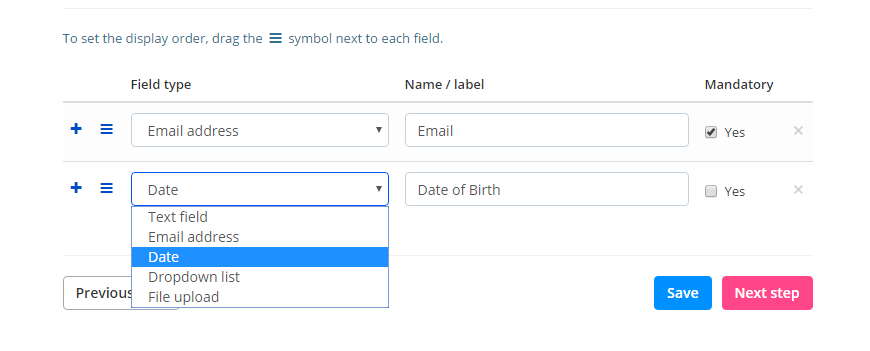According to robust data, the travel and tourism industry is the second-fastest-growing sector in the world, after manufacturing. The World Travel and Tourism Council (WTTC) concluded that in 2018, travel and tourism increased by 3.9%, more than the global GDP growth of 3.2%. As we speak, the Coronavirus outbreak generates a degree of uncertainty related to how and when the travel and tourism sector will get back to normal. However, we consider that destinations around the world begin to accept this delicate situation with a number of precautionary measures in place. Besides recommended measures coming from local authorities, such as social distancing and proper hygiene, we believe that travel and tourism organizations have the proper resources to integrate innovative technologies, such as blockchain and cryptocurrencies.
If used accordingly, blockchain and cryptocurrencies can contribute to the comfort and safety of a traveler’s journey. It can provide a new experience in terms of booking travel tickets and hotel rooms, removing intermediaries out of the way. For the purpose of this article, we’re going to explore different applications of blockchain technology in the travel and tourism industry.
First, what is blockchain technology exactly?
Even if it might sound confusing at first, it is actually pretty straight-forward to understand the basics of it. It can be looked at as a list of public records, also known as public ledger, with transactions between parties listed or stored in a transparent manner. Individual entries are encrypted and grouped into blocks that form a chain, therefore leading to the blockchain terminology.
The main characteristic and differentiator of the blockchain technology is that data is decentralized, meaning that it becomes available throughout the different nodes or computers part of the network. Copies of the compiled information are available on individual devices that are part of the network. In other words, the information stored is shared across a peer-to-peer (P2P) network. It is completely transparent, and it cannot be altered without the permission of the entire network and without modifying all subsequent blocks.
Applications of blockchain in Travel and Tourism
Recently, blockchain has gained a lot of interest in the travel and tourism industry. An increasing number of major companies have incorporated this technology in their list of offerings. Below, there are different ways in which blockchain technology might be used in the travel and tourism sector.
- Lower transaction costs
The implication of intermediaries has inevitably been one key issue in the travel and tourism sector. These third parties involved in the booking process of hotels, airlines and other travel service suppliers result in additional fees for the end-user (tourist or traveler). TripAdvisor is an example of a third party that charges additional fees for their available services.
With the employment of blockchain technology, the long chain of intermediaries that results in delays and financial losses can be simplified. It is an ideal way to close the “gaps” made by different payment providers. At the moment, travel agents wait on average 60 days to earn their commission after a client checks out, because of the many parties involved in the payment cycle. Commission reconciliation can be a real hustle among travel agents. Travelport, a B2C travel service provider decided to adopt IBM’s Hyperledger Fabric to assure commissions paid to travel agencies. The main purpose of this partnership is to decrease the number of third parties involved in the payment cycle, by relying on blockchain in the process of a booking.
- Trucking luggage
I bet that some of you that are reading this post have experienced issues with claiming a luggage, especially when dealing with international destinations. It’s definitely not a good start for a holiday or business trip. A traveler’s baggage is subject to several automated and manual processes, before being picked up at the final destination. This luggage itinerary is stored in a non-standardized form by the parties involved and these parties include airlines personnel, transportation companies, airports, and local authorities.
Blockchain, with its online-record keeping system stored on a peer-to-peer network can be a game changer and step up the way in which airlines tackle the problems of lost luggage. This way, both customers and airlines can track a luggage in all stages of its transfer process, offering full transparency to the process. Therefore, if a bag is mistakenly left behind, airlines can easily access its entire journey and identify the exact point where it went missing and the reason for that.
Back in 2017, Air New Zealand partnered up with Winding Tree, a decentralized Swiss travel start-up. The main purpose of this collaboration was to explore applications of blockchain technology in the airline’s business. Their mission was to improve security and efficiency of services, such as baggage tracking and ticket booking.

- Traveller’s identification
As blockchain does not store information on a central database, the customer identification process can save up a considerable amount of time by using this technology. It can even replace passports and become an industry standard for storing such personal information.
The World Economic Forum along the governments of Canada and the Netherlands launched a pilot program for paperless journeys between the two countries. This new project, entitled Known Traveller Digital Identity (KTDI), is the only solution to use digital identity for international trips, giving the traveler’s full control over how their own data is used. Personal data that is usually stored on a passport’s chip is replaced by encrypted data stored in a traveler’s digital wallet and it becomes available on mobile devices. Compared to old-fashioned ID systems that are operated by centralized authorities, KTDI is based on blockchain technology.
- Secure and traceable transactions with Cryptocurrencies
An increasing number of companies in the travel and tourism sector begin to realize that accepting cryptocurrencies as a payment alternative creates a seamless purchase behavior. The major benefit that cryptocurrencies brings with it is that it eliminates traditional payment methods that rely on third-party payment apps. This way, transactions can occur between two entities directly involved. Payments based on blockchain technology will also decrease the time needed for completion of payments, resulting in faster transaction speed and more sales.
Another benefit is that cryptocurrencies replace the need of exchanging money into the local currency. It eliminates currency exchange commissions and users can take advantage of the same value no matter where they are. Forget about spending part of your allocated budget on bank commissions.
Given the various benefits of accepting crypto payments in travel and tourism, there are still some gaps that need to be addressed. It is not enough for a single entity to accept cryptocurrencies. For example, a travel agency that accepts crypto payments will still have to exchange those to Fiat money to contract services from providers that do not accept digital currencies. It is a matter of time until other parties involved will realize the benefits it brings with it.
Final thoughts
There is no doubt that blockchain technology has enough features and resources to revolutionize the travel and tourism industry. However, this innovative technology is still in the early stages of its life. To take advantage of its unique features, such as personal identification, governments and other authorities should have a good understanding of the benefits that it brings to the table. Anyway, many organizations from the travel and tourism industry begin to find out its applicability and that’s obviously a good sign for those involved in it.









